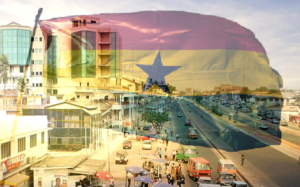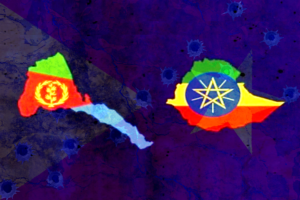Deadlier Floods Sweep the Globe as Scientists Warn Climate Change is Fueling Their Rising Frequency
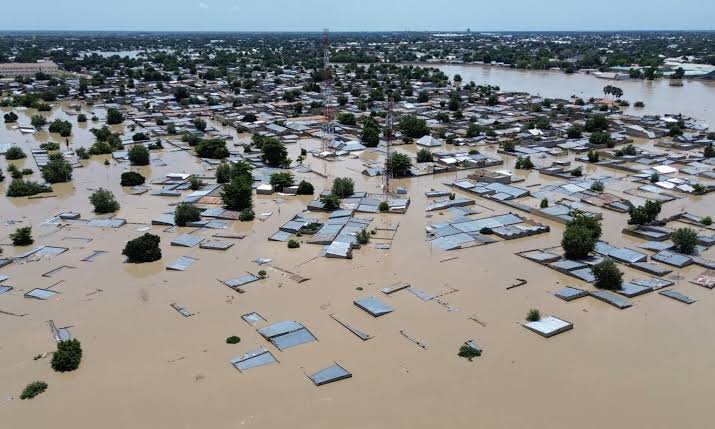
Around the globe, unprecedented floods are leaving a trail of flood devastation, from submerged cities in Asia to washed-out communities in Europe and Africa. Scientists warn these disasters are not isolated events but part of a troubling trend linked to the accelerating climate crisis.
Rising global temperatures are intensifying rainfall, melting glaciers and disrupting weather patterns, creating the perfect storm for flooding on a massive scale. According to climate researchers, warmer air holds more moisture, which leads to heavier downpours, while rising seas make coastal floods more destructive.
![]()
This is not a future threat, it’s happening now. Emphasis is that the world is already witnessing the deadly intersection of human-driven climate change and vulnerable infrastructure.
In Nigeria and some parts of Africa, the risk heightens as deadly floods threaten lives, livelihoods and stability. Torrential rains and deadly floods devastate communities across the continent. While the climate crisis is still accelerating the frequency and severity of such disasters, which is threatening to reshape family life, human survival, cultural identity, global economies, politics and social cohesion. Experts caution that without urgent action to cut emissions, strengthen early warning systems, and build climate-resilient infrastructure, flooding could become one of the most defining global crises of the 21st century.
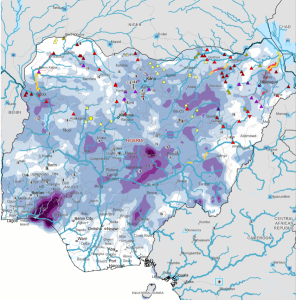
The human toll is staggering. Millions of people are displaced, billions of assets in damages and rising death counts with each deluge. As floodwaters recede, the messages from scientists get clearer that delay is no longer an option.
The alarming-arrays of rising waters and rising warnings to different parts of the world, from Europe to South Asia to Africa to the North/Southern America of floodwaters from natural disaster, breaching historic levels, overwhelming infrastructure and submerging farmlands, are no to be taken lightly by the decisional-systems of bureaucratic structures. Scientists link this alarming patterns to climate change, as rising global temperatures intensify rainfall, shift weather systems and amplify the destructive power of storms.
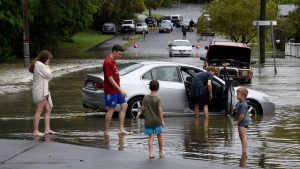
Some hydrologists believe that flooding is no longer an occasional natural disaster, it is becoming an everyday reality for millions. And if the world does not phase out fossil fuels ontime, she might be looking at a future where extreme floods are part of the new normal.
Nigeria, Africa’s most populous nation that is bracing for impact, is among the countries now staring down the growing menace. Between 27 August and 16 September 2025, forecasts warn of potential river floods, particularly along the Niger and Benue river basins. Already, in the south-east, heavy rainfall has triggered severe flooding. As at 11th of August 2025, the toll reads over 11 deaths, five people missing, 800 people displaced and vast stretches of farmland submerged; and counting.
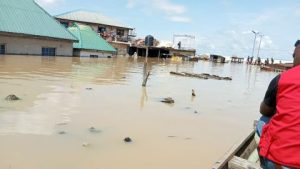
The losses extend far beyond the statistics. With regards to families, these floods mean homes washed away, children unable to attend school and generations of memories destroyed in minutes. For farmers, who make up a large part of Nigeria’s workforce, it means ruined harvests, debts and despair. A human dimension of silent sufferings.
Floods leave more than physical destruction, they carve deep emotional scars. Displacement uproots families, forcing them into overcrowded shelters where food, water and medical care are scarce. Children face heightened risks of malnutrition, disease, lack of hygienic circumstances and interrupted education. Women who are the caregivers of the family frontline, bear disproportionate burdens, struggling to keep families safe and fed while dealing with trauma themselves.
![]()
![]()
Ngozi (surname withheld), a mother of three whose family farm in Anambra state was washed away said that – “the pain is not just in what we lose today, but in the uncertainty of tomorrow. “We don’t know if we will ever rebuild or if the floods will come again next year.” This notion indicates the cultural dimension implication that sees heritages going underwater.
Floods also threaten Nigeria’s ethno-historical fabric, connoting people’s farmlands, ancestral homes, cultural lineage, possessions and sacred spaces risk permanent destruction. Communities whose identities are tied to land and water, such as fishing villages along the Niger Delta, face displacement. This instance, raise questions about the survival of customs and indigenous knowledge passed down for centuries.
![]()
Moreover, across the globe, UNESCO has warned that cultural heritage sites, from temples to historic towns, are increasingly vulnerable to climate-driven floods, which could erase centuries of human history in a single season.
Business and Economic Fallout: The economic toll of flooding is staggering. In Nigeria, where agriculture employs over 30% of the population, submerged fields threaten food security and livelihoods. Businesses from small traders to manufacturers suffer losses as transport routes are cut off and supply chains collapse.
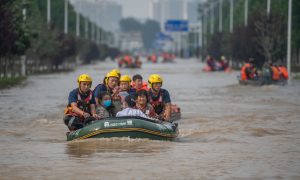
![]()
Globally, flood damage is costing nations billions each year, straining insurance systems and forcing companies to reconsider investments in high-risk regions. Economists warn that unchecked flooding could destabilize financial markets, widen inequality, and plunge vulnerable nations deeper into debt.
| Region | Recent Annual Losses / Examples |
| Africa | · Tanzania: US $2 billion annually,
· Nigeria (2012): US $10 billion, · Mozambique (2013): US $500 million, · Benin: US $490 million annually, · Region: Up to 5% of GDP and diversion of ~10% of budgets to climate response, · H1 2024 losses: US $463 million, |
| Global (incl. U.S.) | · Global disasters (2024): US $368 billion; Insured losses US $145 billion,
· Slovenia (2023 floods): ~16% of GDP By 2030: · Projected global flood cost US $513 billion; insured >US $54 billion, · Floods displace ~19 million annually, · U.S. property losses: US $8.2 billion/year, decadal avg >US $100 billion |
In the stance of political dimension and test of leadership: floods are also they are political flashpoints than just natural disasters. In Nigeria, Africa and in some part of the world, critics argue that poor urban planning, weak enforcement of environmental regulations and delayed emergency responses worsen the crisis. Floods have become a litmus test for political leaders, exposing failures in governance and fueling public anger.
Internationally, the crisis intensifies debates over climate justice. Developing countries like Nigeria contribute the least to greenhouse gas emissions but suffer the heaviest consequences. Calls for wealthy nations to deliver on climate financing commitments are growing louder, as adaptation and resilience require billions in investment.
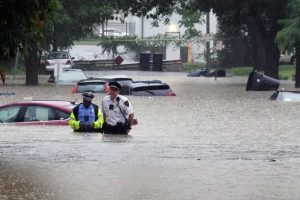
When waters rise, so does social strain. Displacement often forces different communities to compete for scarce resources, leading to tensions. In some regions, migration triggered by floods has fueled conflict over land and jobs. Social inequalities are magnified, as the poor living in flood-prone informal settlements are hit hardest, while wealthier populations can afford to rebuild or relocate.
Yet, amid the chaos, floods also spark solidarity. Communities come together to rescue neighbors, share food, and rebuild homes. Civil society groups and faith-based organizations often step in where governments fall short, providing emergency relief and hope.
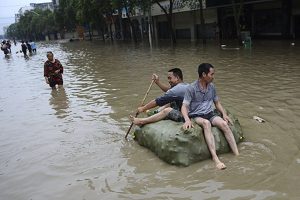
Experts stress that solutions exist but require urgent action. Phasing out fossil fuels, investing in renewable energy, enforcing sustainable urban planning, and building flood-resilient infrastructure are critical. In Nigeria, upgrading drainage systems, strengthening early-warning networks, and providing farmers with climate-smart tools could help buffer communities.
Globally, scientists warn that without a shift to net-zero emissions, the cascading impacts of floods on families, culture, business, politics and society, will intensify. The choice is stark. Is either we act now to mitigate this frequent rising global disaster, or we consign our future generations to a world where floods are not seen as disasters, but a permanent condition of human life.





